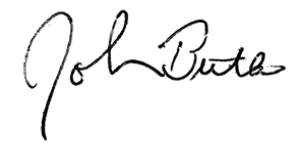- AI remains controversial
- Governments seek to control it
- Elon Musk is doing the opposite
Robert Heinlein is one of the granddaddies of modern science fiction, inspiring Arthur Clarke and Phillip K. Dick, among others. Although pioneered by HG Wells and Jules Verne already in the 19th century, in the mid-20th century, science fiction emerged as a distinct literary genre that went far beyond mere speculation as to what technological wonders the future might bring.
Indeed, following WWII, science fiction began to explore the deepest of deep philosophical questions, such as what it means to be human, the nature of intelligence, cognition and consciousness, universal ethics and the existence (or not) of God.
Heinlein’s contributions to the above cannot be overstated. And while it is long and hard-going at times, his magnum opus, Stranger in a Strange Land, stands apart for its nearly prophetic accuracy regarding the future evolution of several social trends that had hardly even been recognised in Heinlein’s time, much less understood. (These include the impact of television, a young technology when the book was published.)
Heinlein even invented a word for “understood”: grok. To grok something is to understand it so completely that it is simply impossible to learn anything more about it or question it in any way.
And so, when my colleague Sam Volkering chose to use the term in his latest edition of AI Collision this week, I had to inquire whether he in fact groked what grok meant.
He does. And he explains how Elon Musk does too:
Grok is the AI that Elon has let loose in the X.com universe. Grok is built as an AI chatbot similar to others that are available, such as ChatGPT, Bard and Claude. The name Grok has significance too. Elon, a known sci-fi obsessive, took the name from the sci-fi novel Stranger in a Strange Land by sci-pioneer Robert Heinlein. It is a seminal piece that even inspired Bill Gates to much of his own success. Grok means, to understand something so thoroughly it isn’t really possible to learn (or question) anything more about it.
Grok is only in limited release in the US right now, but I don’t expect it will be long until it’s widely available through X.com.
What makes Grok interesting is that you can expect it to be “spicy” (a term being used a lot about it right now), which means it will have some humour in its answers, and I suspect it will be in the image of Elon’s own humour.
Grok is also learning in real time through X.com.
You see, X.com is actually an immense database. It is real-time data about everything happening in the world right now. And Grok is “Feeding” off all that data that people are posting through X.com.
That means Grok is expected to be far better at providing fast, AI-based answers to events as they’re happening in the world. ChatGPT has a Bing-integrated search function, but it’s slow and limited to a Bing search.
Grok will draw on everyone’s data as they post it. How that plays out will be interesting, and as we get to test it first-hand, it will be fun to see how it differs from GPT-4, Bard and Claude.
What we know, though, is that if Grok is learning as we speak and if X.com is fast becoming an all-in-one financial application, then we’re on the cusp of seeing one of the biggest AI collisions of all time: AI and money.
Imagine that: artificial intelligence (AI) that learns in real-time from the world’s largest marketplace of ideas. Good ideas, bad ideas and everything in between. But if you believe that bottom-up, voluntary, market-oriented forms of social organisation (e.g. free-market exchange and free speech) are superior to top-down, command and control systems (e.g. socialism or communism) then AI technology driven by a marketplace of ideas is far preferable to one that is designed, imposed and regulated by the government.
Indeed, the government-led rush to regulate AI before it is even established as an important part of our commercial or social existence is telling. The UK government hosted an AI conference just this past week, with the point being to agree to some degree of international regulatory cooperation. It clearly doesn’t want to let such a potentially powerful free-market genie out of the bottle.
Hence why the US government also sought to moderate content on Twitter, something that many believe was a serious violation of the US Constitution’s first amendment protecting free speech, including political speech. The recent US Federal Court case Missouri v. Biden found for the plaintiffs, who argued the case on what constitutional experts claim are solid first amendment grounds.
AI is, to some, a frightening technology – think The Terminator, Robocop, 2001: A Space Odyssey or even Gremlins. To me, what is frightening is not the technology itself, but rather how it is used. Most frightening of all, in my opinion, is that it is run by the state or agents thereof.
One thing is certain: no one can grok AI’s potential in its entirety. Not me, not Sam, not Elon Musk, not the government. But I suspect Heinlein, were he still around, would give it a go.
Until next time,

John Butler
Investment Director, Fortune & Freedom



